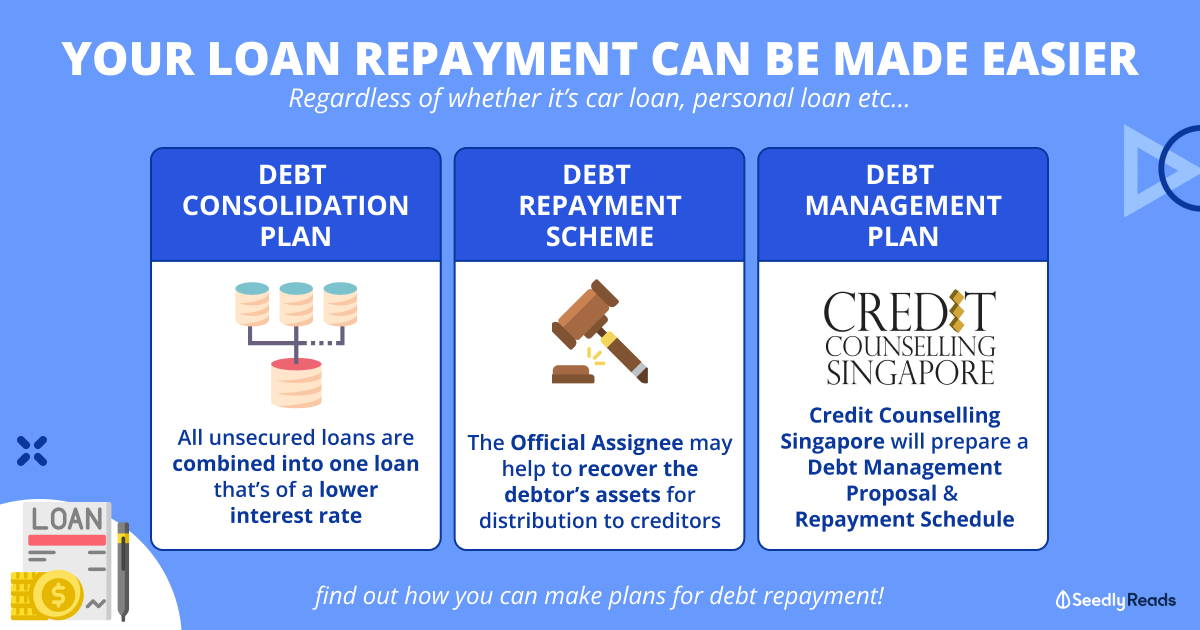Understanding the Refine of Financial Obligation Combination: More Discussion Posted Here
Understanding the Refine of Financial Obligation Combination: More Discussion Posted Here
Blog Article
Whatever You Required to Find Out About Creating a Personalized Debt Monitoring Plan
In the realm of individual financing, designing a tailored financial obligation monitoring plan is commonly the cornerstone of attaining monetary security and peace of mind. As you navigate the intricacies of developing an individualized debt administration strategy, recognizing the intricacies of each step is key to your monetary success.
Analyzing Your Existing Debt Circumstance
One need to first conduct a thorough analysis of their existing financial debt responsibilities before formulating an effective financial obligation management plan. Analyzing your present financial obligation situation is an important first action in getting control of your finances. Begin by collecting all necessary economic records, such as bank card statements, loan agreements, and any kind of exceptional expenses. Create an in-depth list of each financial obligation, consisting of the complete amount owed, rates of interest, minimum monthly settlements, and due dates. This comprehensive review will certainly provide a clear image of your economic standing and aid focus on which financial debts to address initially.
After compiling this details, calculate your complete debt-to-income proportion by separating your month-to-month financial obligation payments by your regular monthly revenue. Understanding these facets of your economic circumstance will direct you in developing a personalized financial debt monitoring plan tailored to your particular requirements and goals.
Setting Financial Goals and Targets

When establishing monetary objectives, it is very important to be particular, measurable, attainable, pertinent, and time-bound (WISE) As an example, you may set an objective to repay a certain quantity of financial debt within a particular period, such as decreasing your debt card balance by $5,000 in the following year - More Discussion Posted Here. By establishing clear targets such as this, you can track your development and stay motivated to attain your financial obligation administration goals
In addition, take into consideration prioritizing your financial obligations based upon elements such as rates of interest, outstanding balances, and payment terms. By concentrating on high-interest financial obligations initially, you can save money in the long run and increase your journey toward economic freedom. Bear in mind, everyone's financial circumstance is distinct, so customize your objectives and targets to fit your specific demands and situations.
Creating a Realistic Budget
Crafting a distinct budget is a basic action in effective debt monitoring and economic planning. A reasonable budget plan serves as a roadmap for your financial wellness, helping you track your revenue, expenditures, and financial obligation settlements. To create a sensible budget, start by listing all your sources of income. This includes your salary, side rush earnings, or any kind of other financial inflows. Next off, catalog all your fixed costs such as rental fee or mortgage, energies, insurance, and funding payments. Variable expenditures like grocery stores, enjoyment, and transportation must check it out also be consisted of. Differentiate in between wants and needs to prioritize vital expenditures and recognize locations where you can reduce.
When establishing budget plan limitations, be straightforward with on your own regarding your costs behaviors and monetary obligations. Allot a section of your earnings in the direction of paying off financial obligation while guaranteeing you have some funds for emergencies and cost savings. Regularly review and change your budget plan as needed to remain on track with your financial goals and financial debt repayment strategy. By sticking to a practical budget, you can effectively handle your financial obligation and work in the direction of an extra secure economic future.
Discovering Financial Debt Settlement Approaches
After developing a realistic spending plan, the next critical action in reliable debt administration is to check out various debt payment methods. One common strategy is the snowball method, where you focus on paying off the smallest financial obligations initially while making minimum repayments on larger financial obligations. This technique can aid build momentum as you see smaller sized financial obligations being gotten rid of, offering inspiration to tackle larger ones.
An additional strategy is the avalanche technique, which includes prioritizing debts with the highest possible rates of interest. By targeting high-interest financial debts initially, you can decrease the general amount you pay in rate of interest gradually. This approach may be more cost-effective in the future, despite the fact that it could take sites longer to see private debts completely paid off.
Financial debt combination is an additional choice where you integrate multiple financial obligations right into a single funding with a reduced rate of interest. This can simplify your repayment process and potentially decrease the total interest paid. However, it's essential to thoroughly take into consideration the terms and fees linked with loan consolidation to ensure it's the best selection for your financial circumstance.
Surveillance and Changing Your Strategy

Readjusting your strategy may involve reapportioning funds to tackle high-interest debts first, negotiating with creditors for reduced rates of interest or better repayment terms, or checking out added income sources to accelerate debt payment. As your monetary circumstance evolves, your financial obligation administration strategy must adapt as necessary to stay efficient. By staying proactive and adaptable in monitoring and readjusting your strategy, you can enhance your initiatives in the direction of paying off your debts successfully and achieving your economic goals.
Verdict
To conclude, developing a personalized financial obligation administration strategy entails examining existing financial debt, establishing economic objectives, producing a realistic spending plan, exploring payment methods, and tracking and changing the strategy as needed. By adhering to these actions, individuals can take control of their economic situation and job in the direction of ending up being debt-free. It is crucial to remain Check Out Your URL disciplined and committed to the plan in order to achieve long-term economic stability.
One need to initially carry out an extensive assessment of their present debt commitments prior to developing a reliable debt management plan.After establishing a practical budget, the next crucial step in efficient financial debt monitoring is to discover numerous debt repayment techniques - More Discussion Posted Here.To properly manage your financial debt, constant monitoring and modification of your financial obligation monitoring plan are essential elements for long-term economic security.Changing your plan may involve reallocating funds to deal with high-interest financial debts initially, negotiating with creditors for lower rate of interest prices or better repayment terms, or exploring extra income sources to expedite debt settlement.In verdict, developing a personalized financial obligation administration plan involves assessing present financial debt, establishing monetary goals, producing a reasonable budget, exploring payment strategies, and surveillance and readjusting the strategy as needed
Report this page